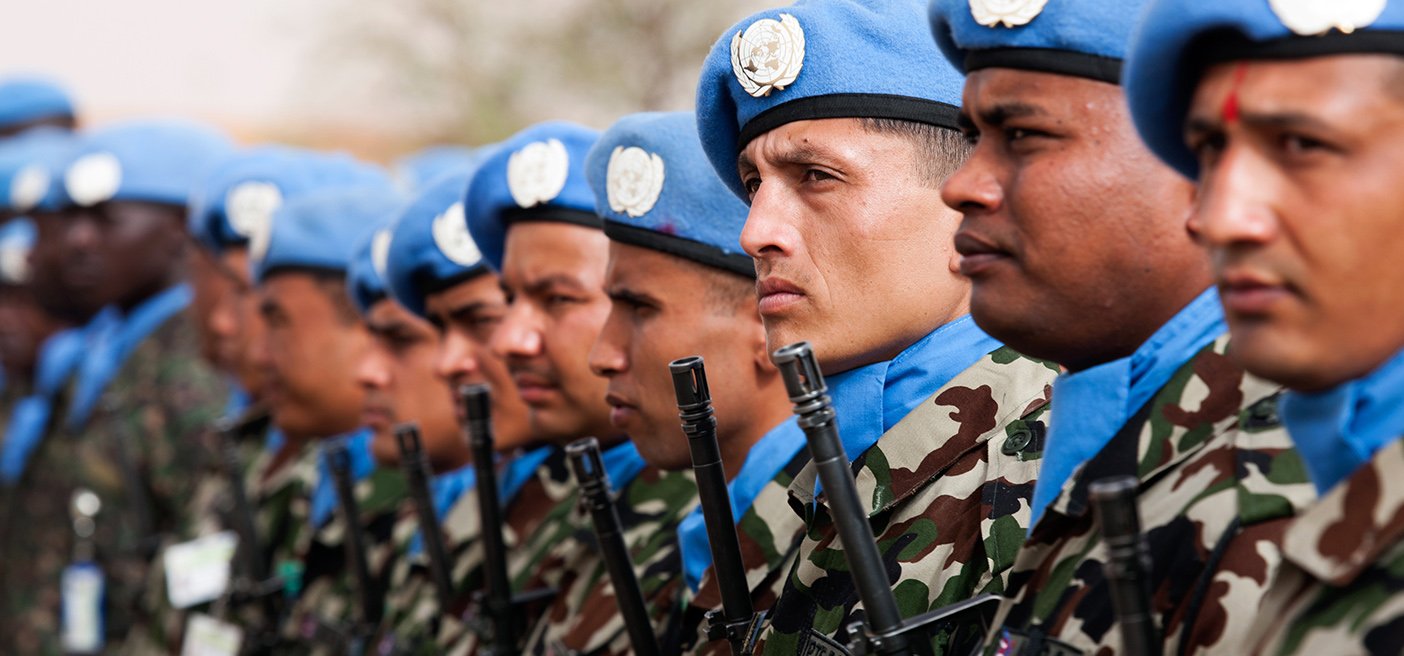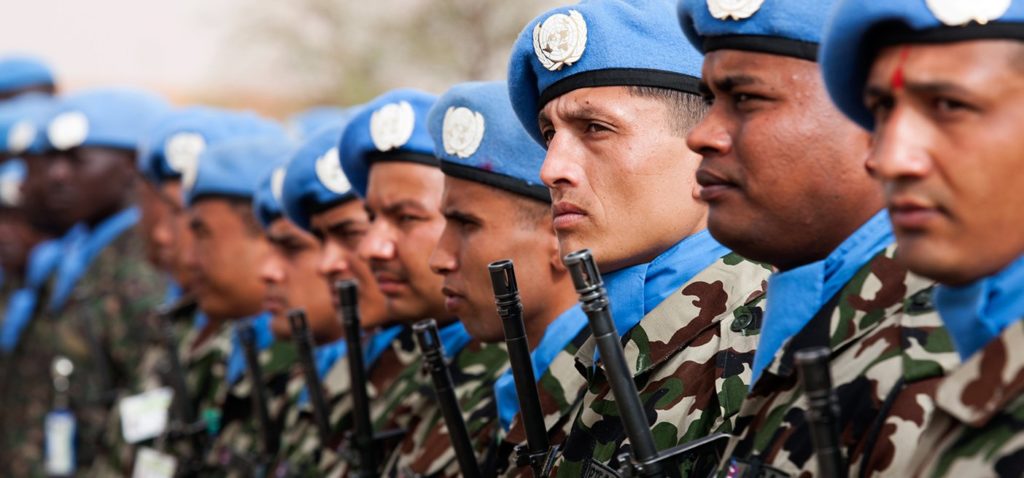UN Peacekeeping Operations Ministerial Conference is Taking Place This Month – The International Community Should Reflect on Practicality


The United Nations peacekeeping operations (PKO) have long been the organizations backbone, with its relevance and effectiveness in maintaining international peace and security. With 14 missions currently deployed around the world, we now have more peacekeepers deployed than at any time in history. With a majority of forces serving in vulnerable areas, the blue helmets often face a lack of resources and capacities to perform as mandated. The shortage of resources and equipment to adequately train the peacekeepers has resulted in unnecessary sacrifices of their lives and a lack of discipline to refrain from sexual exploitation and abuse. On March 29, the UN and its Member States will try to address some of these shortfalls through ambitious objectives during the 2019 UN Peacekeeping Ministerial Conference, but it’s imperative that Member States look to the lessons of the past to achieve such monumental goals.
The UN has been co-hosting the High-Level Conference on Peacekeeping since September 2014, starting off with the 2014 High-level Summit on UN Peacekeeping, co-hosted with the US in New York. After the disappointing results of the Summit, which had failed to draw notable pledges from participating Member States other than the African Peacekeeping Rapid Response Partnership by the US, President Barack Obama took it upon himself the following year to co-host the 2015 Leaders’ Summit on Peacekeeping. Results of the pledges mounted over 40,000 additional troops and police, mainly from the European Member States and China.
In September 2016, the United Kingdom hosted the 2016 UN Peacekeeping Defense Ministerial Conference in London in the hopes of continuing to enhance the capabilities of peacekeeping missions in conflict prevention. However, a lack of preparation and the failure to create political momentum in the Headquarters prior to the summit led to a disappointing outcome.
The following September, Canada had successfully co-hosted what is considered to be the most successful Ministerial Conference in peacekeeping thus far, the 2017 Vancouver Ministerial Conference. With more than 550 delegates from 79 Member States and five international organizations in attendance, the participants focused on the practicality of their pledges.. The most notable achievement from the Vancouver Ministerial was the adoption of the Vancouver Principles. Endorsed by 54 Member States, it called for an end of recruitment and use of child soldiers, and mandating peacekeepers to take preventative action.
Follow-up on implementation of the Vancouver Principles has been more practical compared to that of the previous Ministerial Conferences. Canada has been tirelessly pushing for the implementation of its Elsie Initiative, designed to empower women through increasing the number of female officers in peacekeeping operations. Meanwhile, they are enhancing the missions’ capabilities in communicating with the local communities, especially in engaging with the victims of sexual exploitation and abuse.
Since the Vancouver Ministerial Conference, Secretary-General António Guterres has taken another step in the Headquarters to create political momentum in enhancing the operational effectiveness of UN peace operations. This came to fruition in September 2018 through his Action for Peacekeeping (A4P) Initiative, which aims to conduct a holistic review on all aspects of the peacekeeping operations while renewing the commitment of the international community to implement the previous pledges made during the Ministerial Conferences. Also known as The Declaration of Shared Commitments, the A4P Initiative was endorsed by 151 Member States during the High-level week of the 73rd session of the UN General Assembly, and looks to address the following areas in peacekeeping: 1) strengthen political support of the international community in peacekeeping, 2) implement the Women, Peace and Security (WPS) agenda, 3) strengthen mission mandates in protection of civilians, 4) enhance safety and security of the peacekeepers, 5) enhance performance of missions and enforce accountability, 6) bolster mission mandates in peacebuilding and sustaining peace, and 7) strengthen partnerships with regional and sub-regional organizations.
This year’s Ministerial Conference on March 29 will be the first to be held in 18 months. With the Ministerial Conference being held in the UN Headquarters once again, the main focus of the discussions will be on how the international community can come up with adequate follow-up mechanisms to fully implement the Secretary-General’s A4P initiative. If implemented under step-by-step action plans and perhaps a procedural guideline for all stakeholders, the A4P Initiative could transform the nature of the peacekeeping operations as a whole. It would allow the United Nations to operate as an international organization that maintains international peace and security more effectively, and at a much lower cost. However, doing so will require active engagement from the rest of the international community to pledge and provide adequate resources to strengthen the best available tool in maintaining international peace and security.
In fact, the UN already has all kinds of tools available to address these issues – with the Report of the High-level Panel on Peace Operations (HIPPO Report, 2015) having offered an action plan on enhancing performance and strengthening partnerships. The Cruz Report (2017) listed out a step-by-step guideline on improving safety and security of the peacekeepers, but the only element that is missing is the mechanism for follow-up on the implementation of these plans.
As the international community prepares for the 2019 UN Peacekeeping Ministerial Conference in New York, participants must take into consideration the practicality of the pledges they make, and the effectiveness of those pledges in translating to better performances on the ground. Unless the UN and its Member States can gather from the lessons of previous conferences, pledges without effective implementation will be nothing more than empty words.
The views expressed herein do not necessarily reflect the views of the Permanent Mission of the Republic of Korea to the United Nations and the Ministry of Foreign Affairs
Robert Kang is currently serving as a Researcher at the Permanent Mission of the Republic of Korea to the United Nations. He received his M.A. in International Relations from the Graduate School of Arts and Science at New York University. His research interests include peace operations, counter-terrorism, and multilateralism. He can be reached at Roberthkang89@gmail.com.




